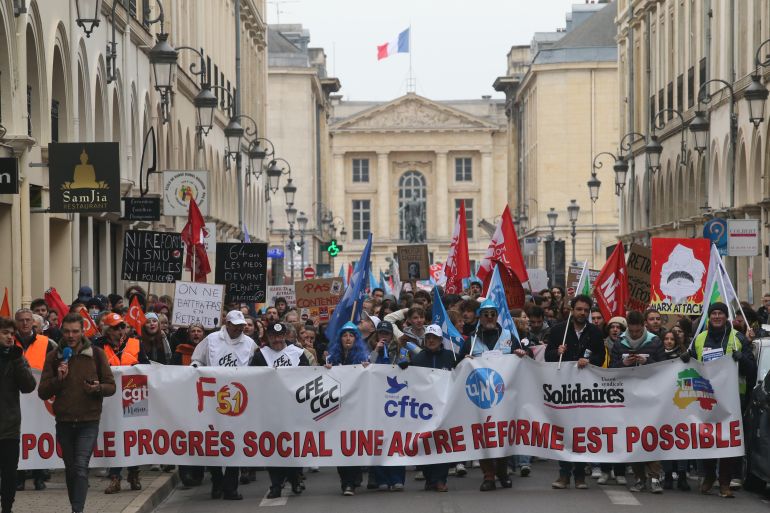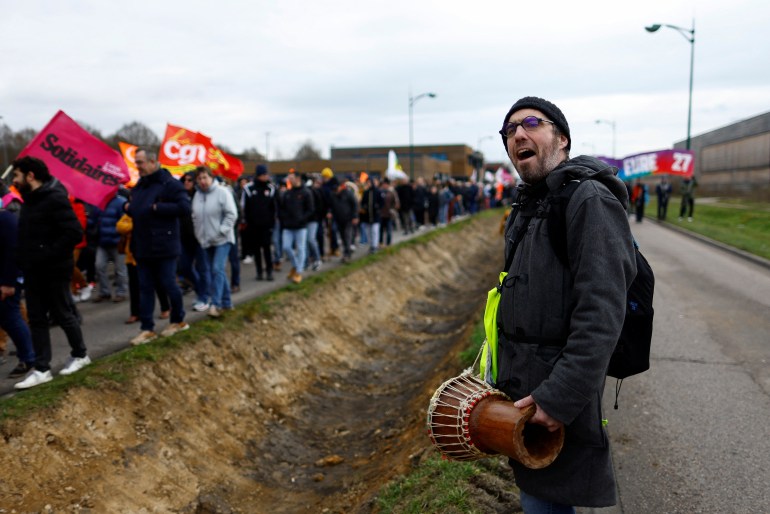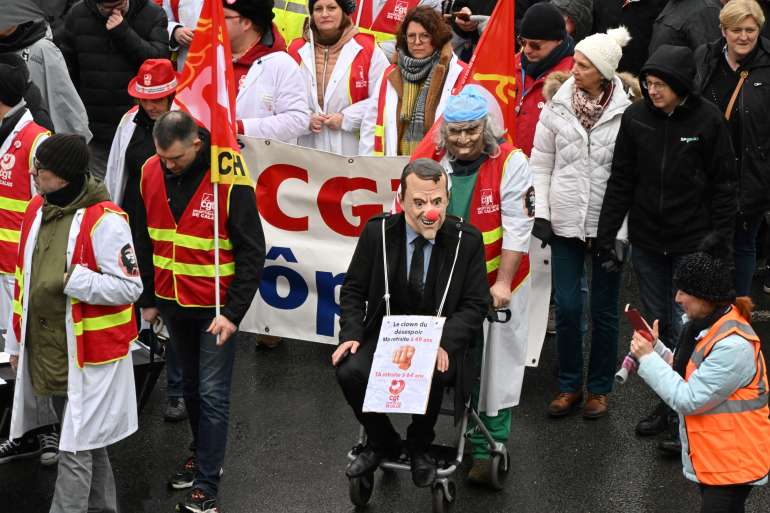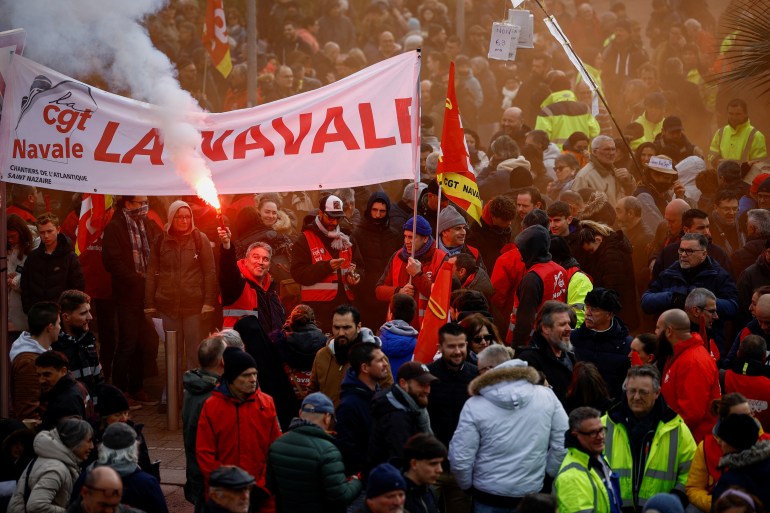Pension reform protests in France: What you need to know
Unions have pledged to continue protesting against proposed changes, including raising the retirement age from 62 to 64.

New strikes and protests from some of France’s leading unions are under way against a highly controversial pensions reform plan that has seen millions come out on the streets against it.
The proposed changes include raising the retirement age from 62 to 64 and increasing the number of years people must make contributions to receive a full state pension.
Keep reading
list of 4 itemsPhotos: Nearly one million French march on fourth day of protests
Are Macron’s pension reform plans unfair to French workers?
Should Europe’s pension schemes be reformed?
The reforms were at the heart of President Emmanuel Macron’s re-election campaign last year, but are proving deeply unpopular.
His cabinet says the changes are essential to prevent the pensions system from falling into deficit and younger people carrying the burden.
Here is what you need to know:
What are the pension reforms?
- The retirement age is proposed to increase by two years to 64. The change will be gradual, increasing by three months per year from September until 2030.
-
From 2027, workers will have to make social security contributions over 43 years rather than 42 years in order to draw a full pension. The additional year was already foreseen in a 2014 reform, but Macron is accelerating the pace of transition.
-
Guaranteed minimum pension income of not less than 85 percent of the net minimum wage, or roughly 1,200 euros per month at current levels, for new retirees.
-
After year one of retirement, the pensions of those receiving a minimum income will be indexed to inflation.

How will this affect pensioners?
- Boost the employment rate among 60-64 year-olds. In France, the employment rate in this age category is just 33 percent compared with 61 percent in Germany and 69 percent in Sweden.
- The changes will lead to 17.7 billion euros ($18.8bn) per year in annual pension contributions by 2030, according to labour ministry estimates.
- The government says pensions of the poorest 30 percent of the population will increase by 2.5 to 5 percent.
- Unions say small increases in contributions could keep it solvent. They say the proposed measures are unfair and would disproportionately affect low-skilled workers in tiring jobs who start their careers early.
What has been the public reaction?
- Nationwide demonstrations broke out against Macron’s government over the past several months, with tens of thousands of people attending.
- Train services and the Paris Metro were disrupted after rail workers also joined the planned protests.
- On the biggest day of demonstrations so far, 1.27 million people demonstrated on January 31. Unions have warned of rolling strikes on public transport that could paralyse parts of the country for weeks on end.
- The far-right party of Marine Le Pen has also raised concerns with Macron’s proposed changes while expressing unease over attempts to paralyse France with ongoing strikes.
What is the latest on the ground?
- Demonstrations started on Tuesday with roadblocks after unions promised to bring the country “to a standstill”.
- Only one in five regional and high-speed trains are expected to run.
- The Esso refineries of Port Jerome in northern France and the Fos-Sur-Mer in southern France were on strike, the CGT union said.

